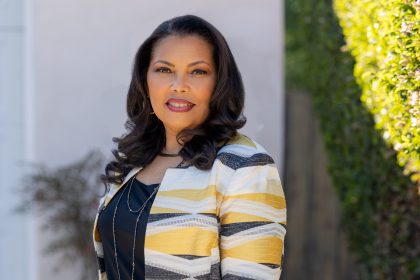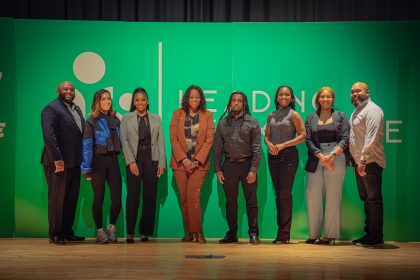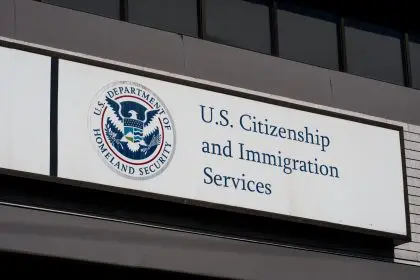
April is National Financial Literacy Month, with April 12, designated as Teach Children to Save Day. One major bank made sure that kids from all demographics had an opportunity to participate. Representatives from Wells Fargo visited classrooms nationwide to share the importance of saving money. The financial giant is so committed to this effort that they have extended the community-based initiative throughout the remainder of the month.
Representatives from the Atlanta-regional office visited Dunbar Elementary. Less than a mile from Turner Field, Dunbar’s surrounding community has pockets of urban blight and above average rates of unemployment. Wells Fargo’s Hands on Banking® financial literacy program not only benefited the children of Dunbar Elementary, but their families as well. Pamela Cross, senior community development officer, was one of the Wells Fargo team members who led over 50 Dunbar children through interactive, critical thinking exercises about the cause and effect of good savings habits and rational versus irrational consumer purchasing.
“The Hands on Banking® program is curriculum-based learning for children, college students, adults and even those who are considering entrepreneurship. We distribute CD-ROMs to schools and libraries, but anyone can access it at www.handsonbanking.com,” Cross stated. “Research has proven that it’s vital for children to create healthy financial habits by the 2nd or 3rd grade. The earlier they learn about money, the better consumers they become, and they know how to handle financial challenges early on.”
Dunbar’s principal, Karen Brown-Collier, is very clear on the merits of the program. When asked, as an educator, how programs like the Wells Fargo help meet the school’s goals, she replied, “Responsibility, pure and simple. In communities like this, low-income kids see the glamour of spending money. But, the long-term commitment of preparing for the future is often lost.”
Brown-Collier’s assessment was evidenced by the children’s fascination at the prospect of have their own savings account now. When queried, each student thought it only possible for adults to have one. Still, they possessed sound knowledge on the cost of video games. Now, they possess knowledge about sound financial decision-making as well as a new tool the whole family can use – one that promotes wealth creation. This is the kind of help urban communities desperately need.
For more information on the Wells Fargo Hands on Banking Program, click here.










